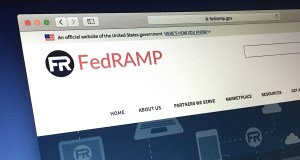 Retired Gen. Stanley McChrystal keynotes FedScoop’s Agile Government Summit presented by IBM, Feb. 13, 2013, Washington, D.C.
Retired Gen. Stanley McChrystal keynotes FedScoop’s Agile Government Summit presented by IBM, Feb. 13, 2013, Washington, D.C.Challenging economic times lead to innovative solutions as large organizations must find new agile ways to solve problems as is the case right now with the federal government, said IBM U.S. Federal General Manager Todd Ramsey kicking off FedScoop’s Agile Government Summit presented by IBM on Wednesday.
The event, held at the Renaissance in Washington, D.C., featured more than 1,700 attendees including thought leaders from both government and industry.
“The greatest innovations are born from the greatest challenges,” Ramsey said. “We all know the federal budget is growing smaller, but it’s an opportunity for innovation and agile organizations to bring new solutions to the forefront that change the way people think.”
Retired Gen. Stanley McChrystal highlighted the event with a keynote speech on leadership, where he discussed the challenges he faced as commander of U.S. and international forces in Afghanistan battling Al-Qaeda.
“Relationships matter and leading is hard,” McChrystal said. “If you’re signing the paycheck, if you are making decisions that effect their family members and their children, you are the one that is responsible for their life and you have a great responsibility.”
He continued, “Leadership is not a talent or a gift, it’s a choice.”
McChrystal, now a senior fellow at Yale University’s Jackson Institute for Global Affairs and new author signed copies of his book, “My Share of the Task: A Memoir.”
Steve Mills, Senior Vice President and Group Executive for Software and Systems for IBM, said that for data to be used in a successful way, it needs variety, velocity, volume and veracity to deal with it. That can be done with information technology, but organizations need a strategy before they choose an IT solution.
Kathy Conrad, principal deputy associate administrator for the Office of Citizen Services and Innovative Technology at the U.S. General Services Administration, said in a fireside chat with IBM’s John Kamensky that a new federal open data policy will be coming out soon that will shift the government from transparency and openness to a place where it can be more effective with the data it collects.
Conrad told industry to not be afraid to give the government constructive criticism when it comes to technology.
“When I worked in industry the joke was you never wanted to call a customer’s baby ugly, but there are constructive ways to provide feedback and guidance,” Conrad said. “If we’re not asking for something realistic please let us know. If we are not away of a better way to solve a problem, please let us know. The government is working very hard to open up early in the procurement cycle to be more agile.”
Rob Bectel, chief technology office for the Department of Energy’s Office of Energy Efficiency & Renewable Energy, said organizations must be fast and iterative in development and the early risk and possible failure is better than wasting money.
Rick Holgate, chief information officer at the Bureau of Alcohol, Tobacco and Firearms, said the level of innovation has outpaced the level adoption past the government’s level of comfort.
“I hesitate to look out two years, let alone three, because of the rapid pace of change,” Holgate said. “What I see happening, though, as we move forward is the government not becoming as device-specific as we are now, but it will be more about how we manage access, how we manage data and how we use applications.”
Holgate added the federal government is moving to a future where it will no longer provide devices to the workforce who will have better devices in their non-work lives. He said employees will get to a point where they’d rather work on their own device – in a form factor they are comfortable with – then have the government provide them with technology.








